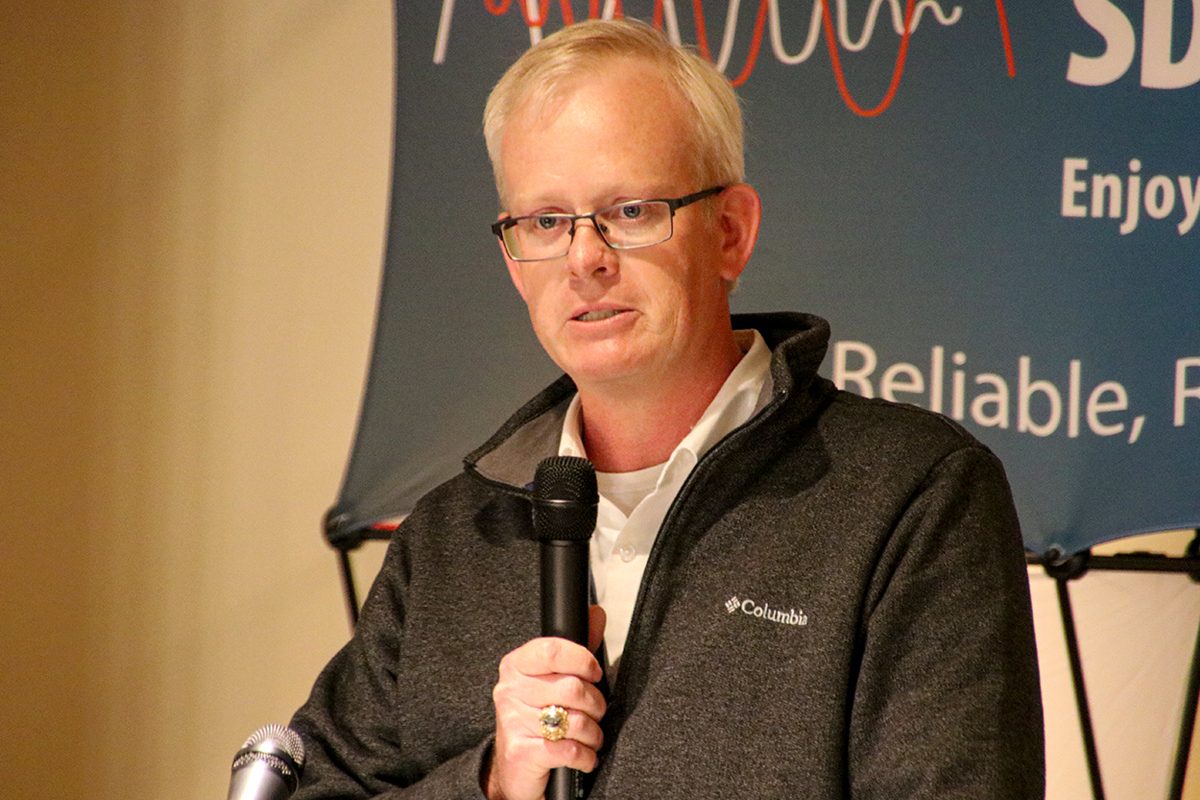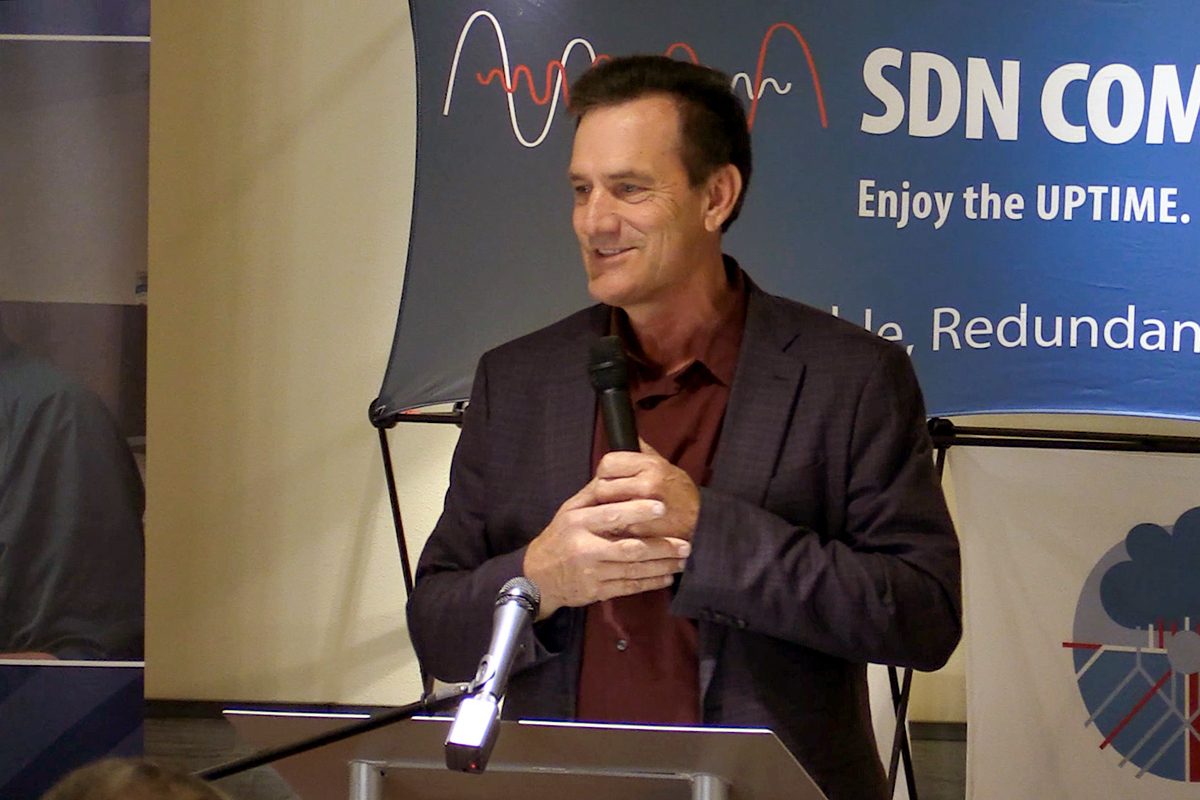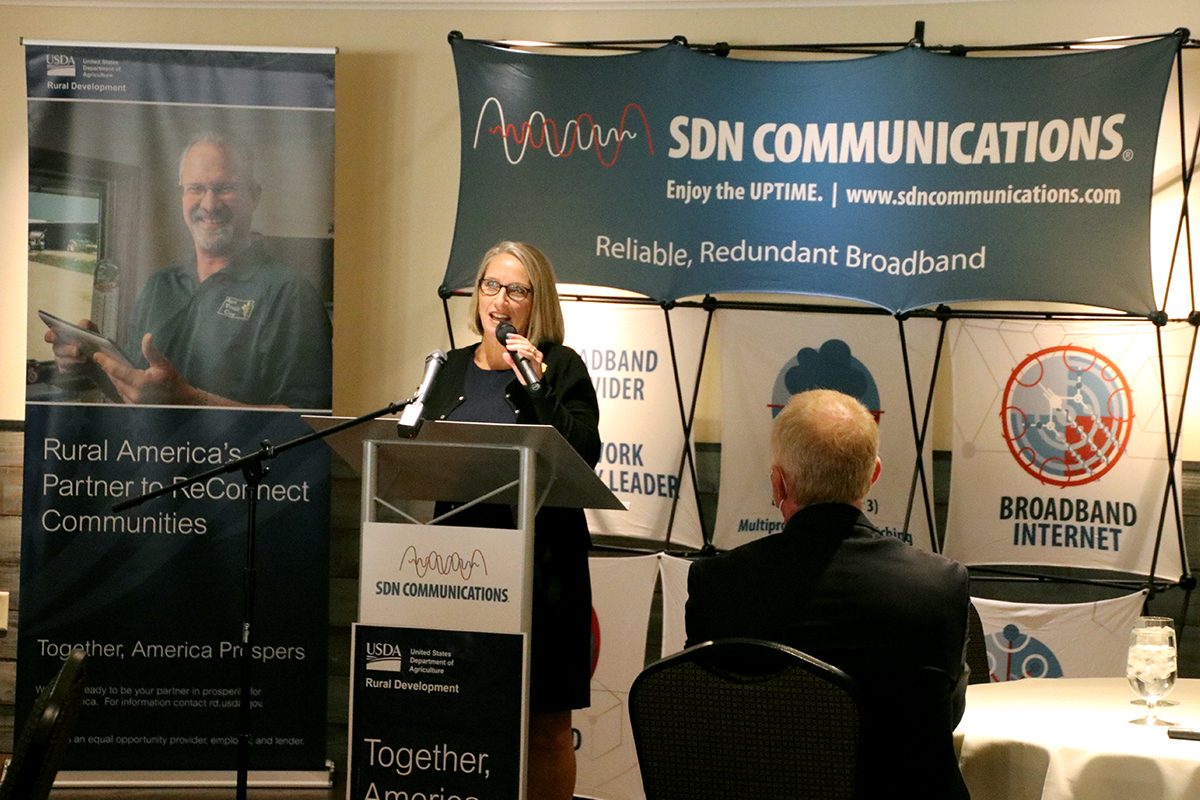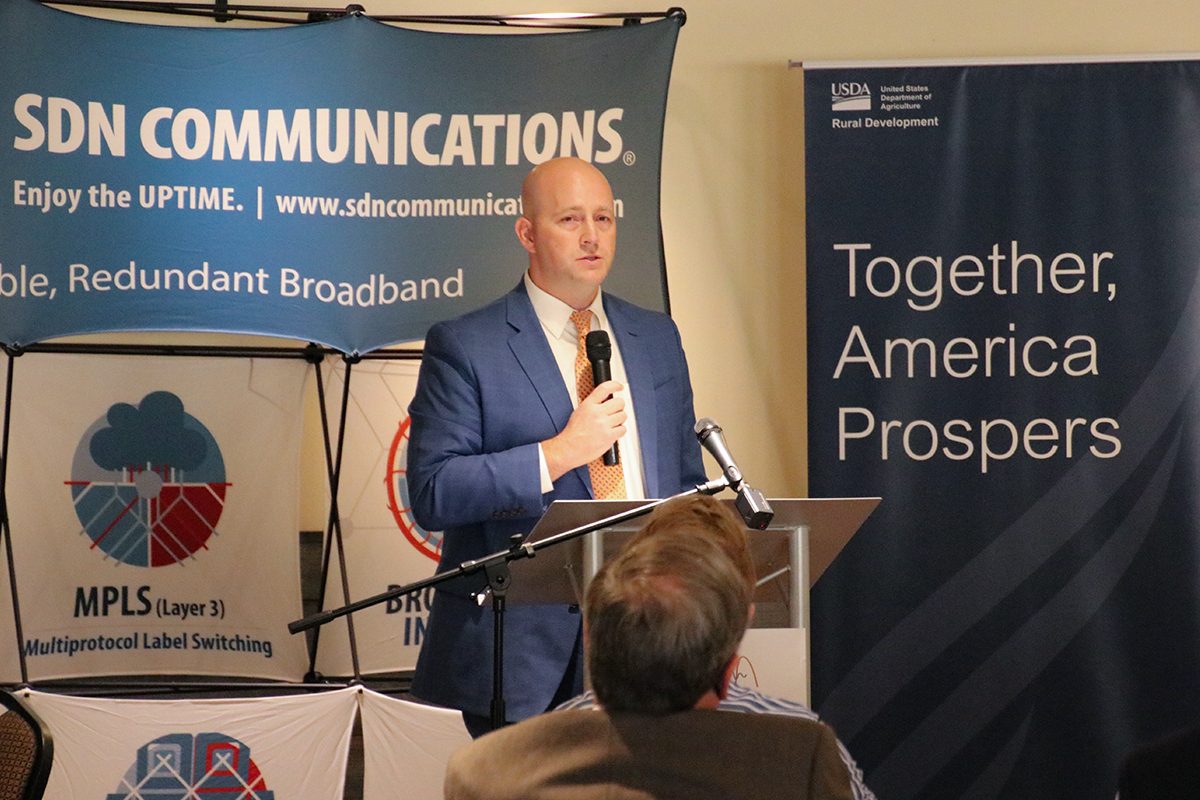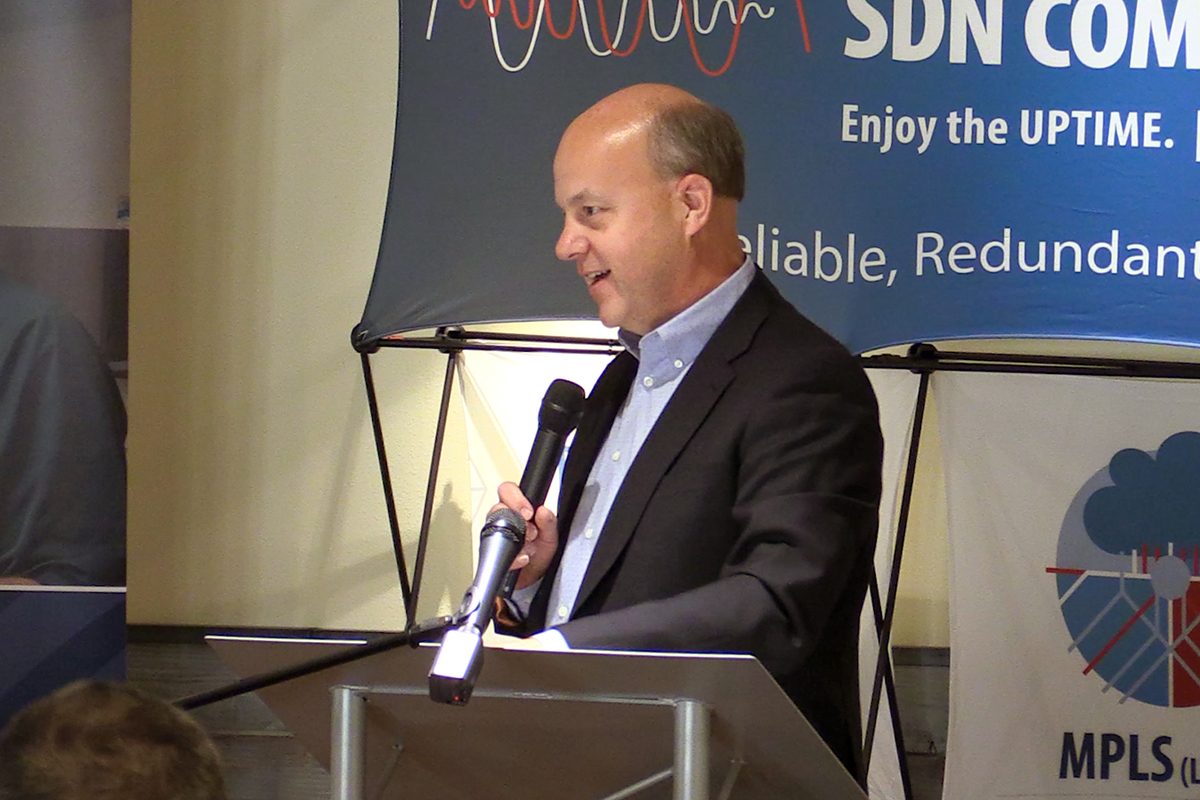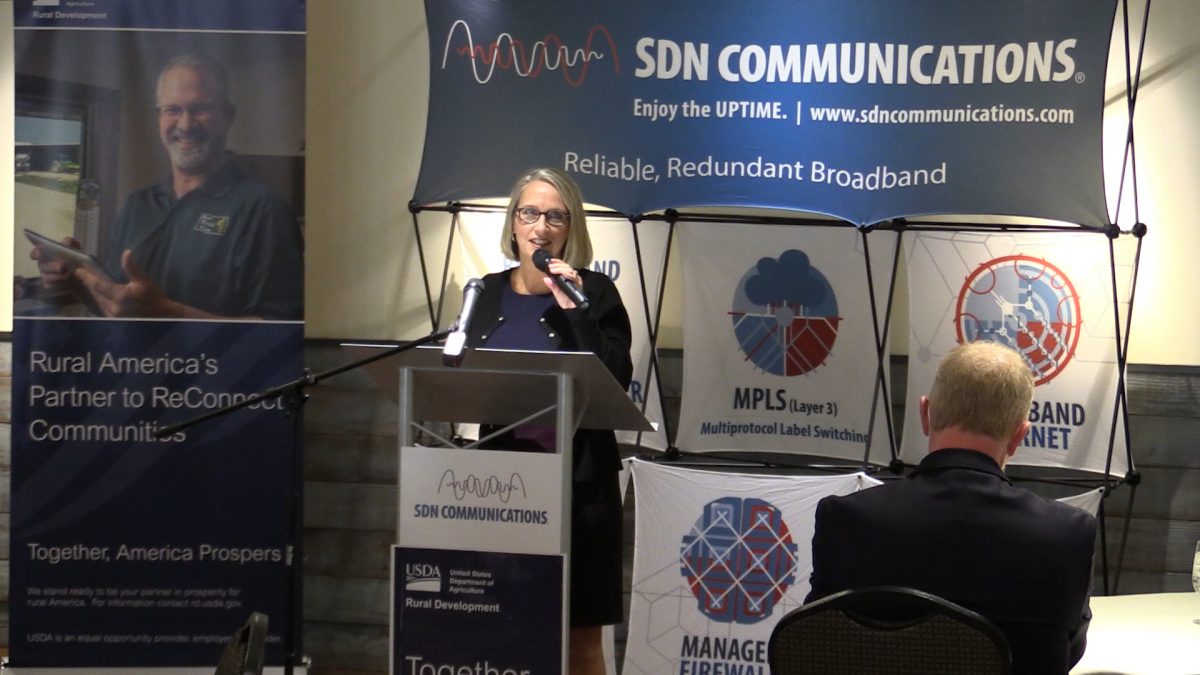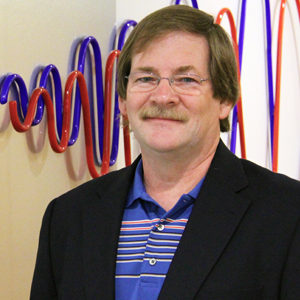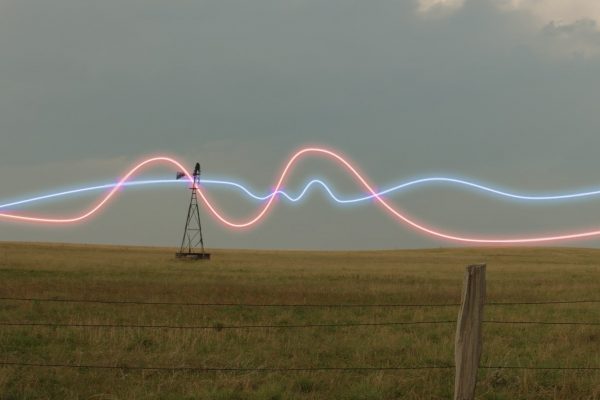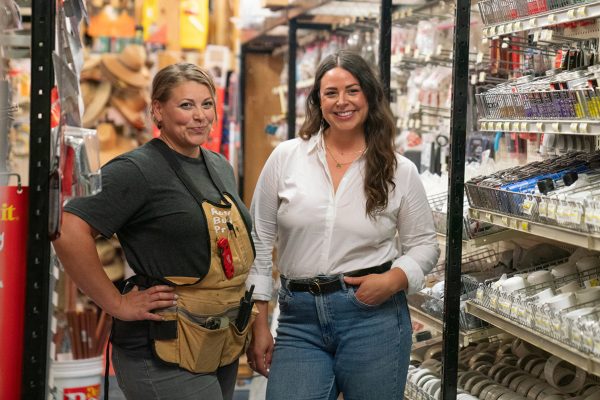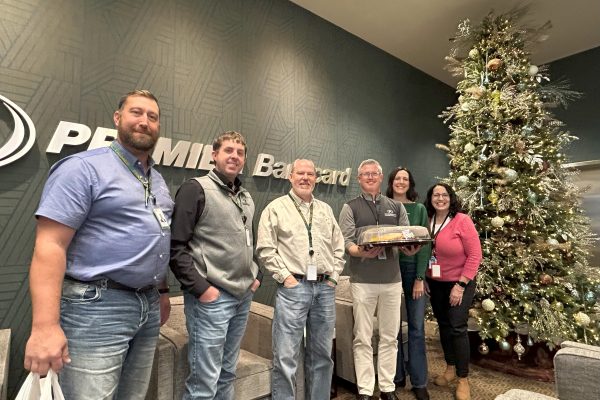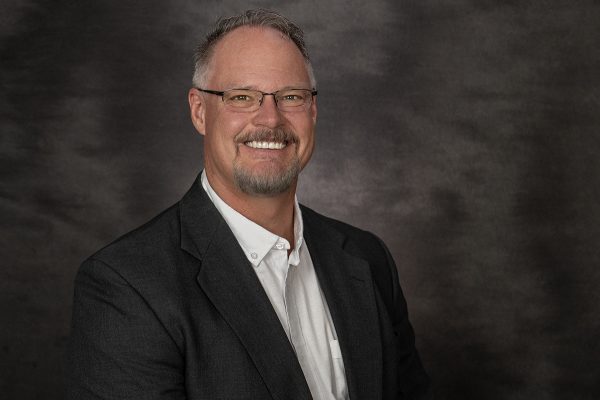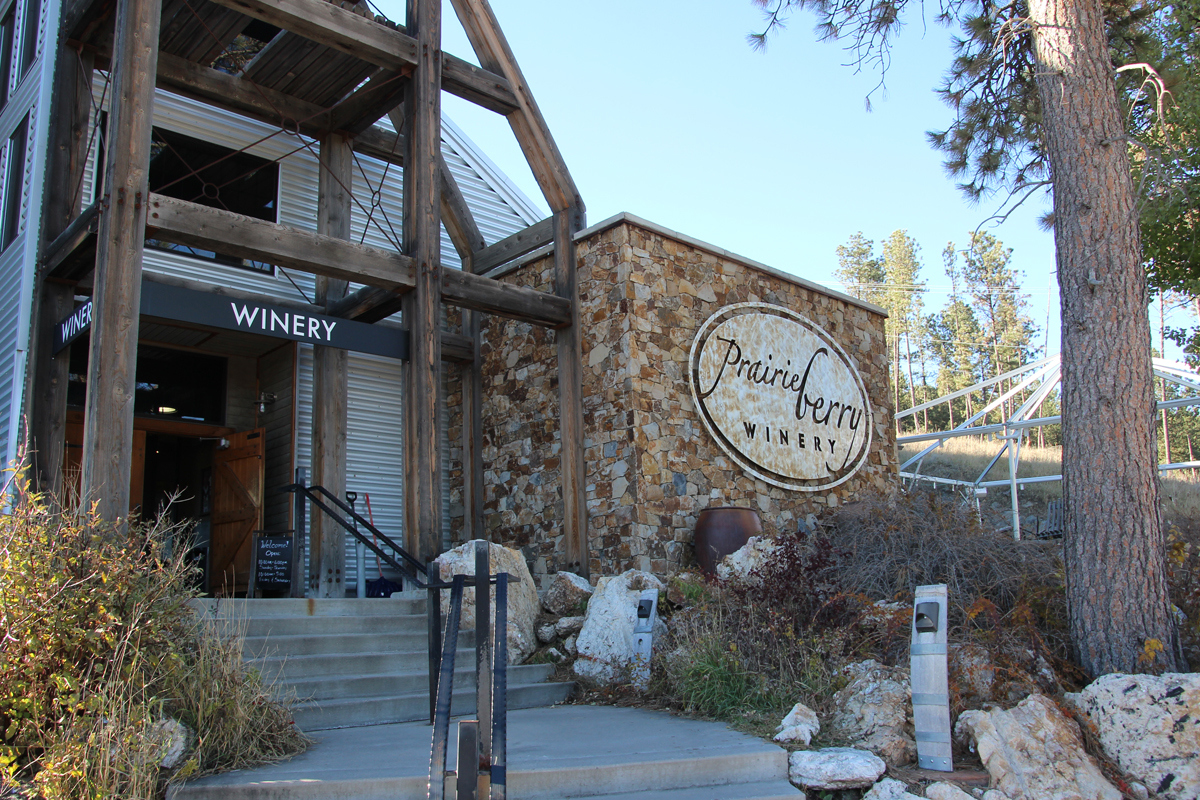
The coming expansion of broadband connectivity in the northern Black Hills has businessman Matt Keck feeling joyful.
“It’s like Christmas Day,” said Keck, the co-founder and co-owner of Prairie Berry Winery and Miner Brewing Co. near Hill City, S.D. “This is fantastic news for us and all of our staff.”
Keck learned recently that the federal Broadband ReConnect Program awarded SDN Communications a grant to extend fiber optic connectivity from the Lead area to the south, along the Highway 385 corridor, nearly to Hill City. Forty miles of fiber will be installed in the area within the next few years.
A $6 million grant from the U.S. Department of Agriculture will be matched by a $2 million investment by SDN. This is in addition to a May announcement awarding $3.3 million with a $1.1 million SDN match. The total build will result in a $12.4 million investment in connectivity for an estimated 1,400 people, 20 businesses, and a handful of ranches.
“We’re excited to enrich the Black Hills with fiber,” said SDN vice president of marketing and community relations Vernon Brown. “This is the new gold of the hills,” he said in remarks at the second ReConnect announcement Oct. 15 at the Prairie Berry Event Center.
Dignitaries who participated in the announcement event included Chad Rupe, administrator for the USDA Rural Utilities Service, and Lt. Gov. Larry Rhoden.
Three SDN members companies also recently received ReConnect 2 grants to help fund fiber projects in other parts of rural South Dakota:
- Valley FiberCom in Volga, which is a subsidiary of Valley Telecommunications in Herreid
- Alliance Communications in Garretson
- Golden West Telecommunications in Wall.
The award SDN received for work in the Black Hills is the biggest of the four grants. It follows a $3.3 million grant the USDA awarded SDN this past spring for work in the Black Hills, which SDN will match with $1.1 million.
“It will include nine towers that will deliver fixed wireless technology to cabins, homes and businesses along that busy path in the heart of the Blacks Hills,” said Vernon Brown, vice president of marketing and community relations for SDN. “This is an extension of a grant that was announced in May. That initial grant covered fiber coming out of Rapid City and extending to what will be towers in Nemo, Rochford and Silver City.”
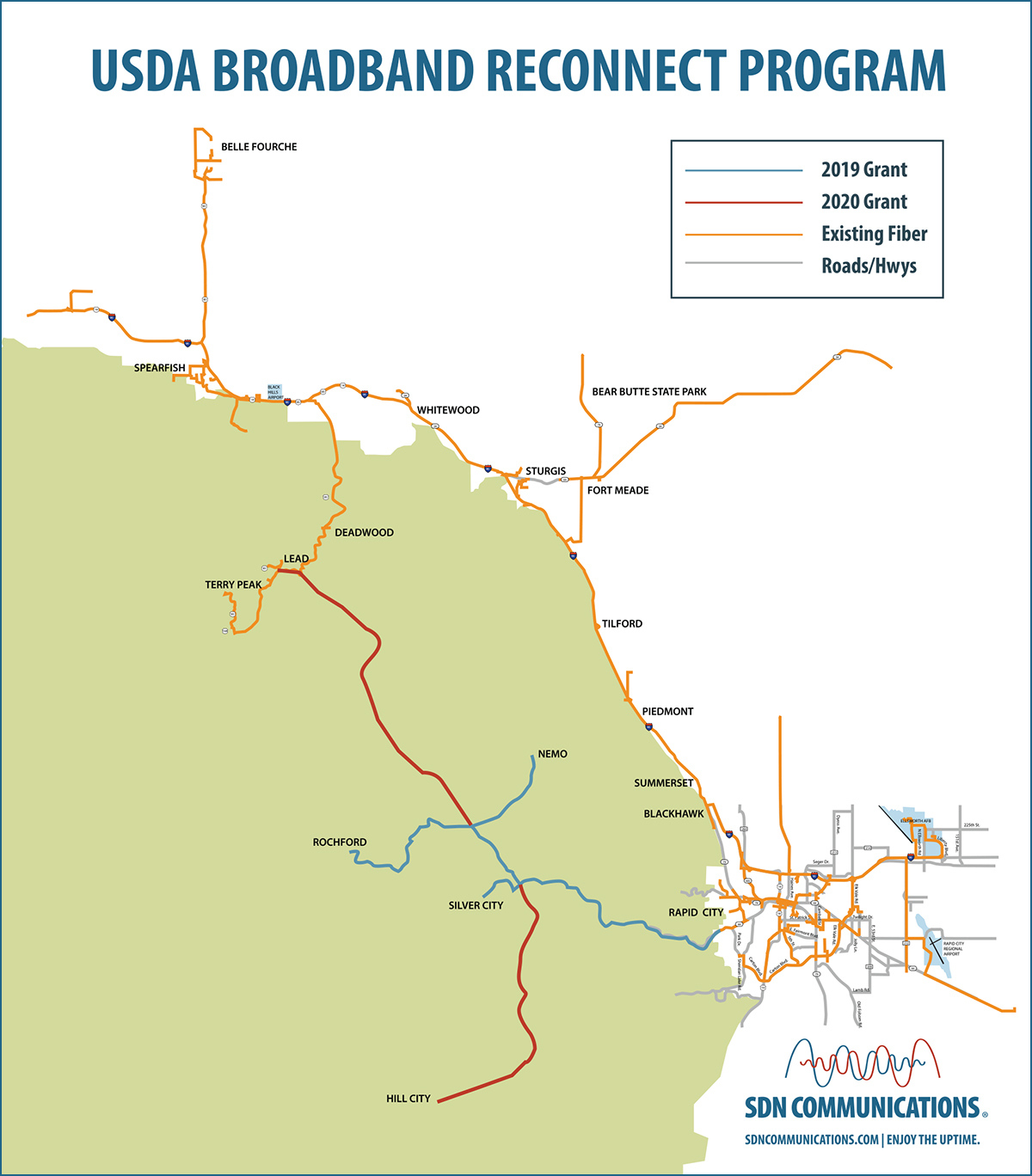
Wireless providers will be invited to lease space on the towers to improve their wireless coverage. SDN has five years to complete construction on both projects, but the company hopes to finish work well before the deadlines.
“This is the most difficult build in all of South Dakota because the granite there is close to the surface. It’s going to be a difficult and expensive project that wouldn’t happen if it not for a public-private partnership,” Brown said.
Towers will be located on U.S. Forestry Service land, which adds to the complexity of preparing for construction. However, the result will be a significant advancement in communication possibilities for the area.
“We see this as a way of helping the economic development of the Black Hills, whether it be residential growth or the business growth, and certainly tourism growth,” Brown said. “In spite of the pandemic, there’s been great tourism traffic in the Black Hills. While people go there to get off the grid, they quickly want to get on the grid when it’s needed, and today that’s not possible.”
Inadequate levels of connectivity create challenges every day for businesses such as Prairie Berry Winery, which is about three miles northeast of Hill City.
Despite the pandemic, Prairie Berry is doing good business, Keck said. The company ships wine to buyers in 35 states. But the company really needs faster internet, he said.
“We’re a very tech-forward company, and when you don’t have high-speed internet it makes it very difficult,” Keck said.
The company is currently connected to the internet, but its provider uses old-fashioned copper lines. Service is reliable, Keck said, but it’s not fast enough to accommodate business functions that are becoming increasingly necessary. Credit card transactions are difficult to process, for example, and cloud-based accounting services are beyond reach.
“More and more demands are being put on the smaller and smaller pipe that we have,” he said.
Limited internet access also hinders emergency services in parts of the Black Hills. Phil Schlief is a resident of Silver City, which will benefit from the first round of the ReConnect Program grant in the Black Hills. Schlief is also the chief of Silver City’s Volunteer Fire Department.
Satellite service is currently his community’s only option for the internet.
“It’s expensive and limited. Most people don’t have it. The Fire Department doesn’t have an internet connection,” Schlief said.
Fiber connectivity will improve public safety by, for example, enabling Silver City’s fire department to keep better track of who’s responding to calls, where trucks are, and other important details, he said.
Better connectivity also will help residents of small, rural communities such as Silver City. Schlief has assisted an elderly neighbor who can no longer access his banking account or order from a pharmacy with the dial-up modem he formerly used. Better connectivity would allow him to access his bank and order from his pharmacy without having to drive 30 miles to Rapid City.
Fiber connectivity will be a big improvement for the whole area, Schlief said.
“It’s going to be a huge benefit for our community,” he said.
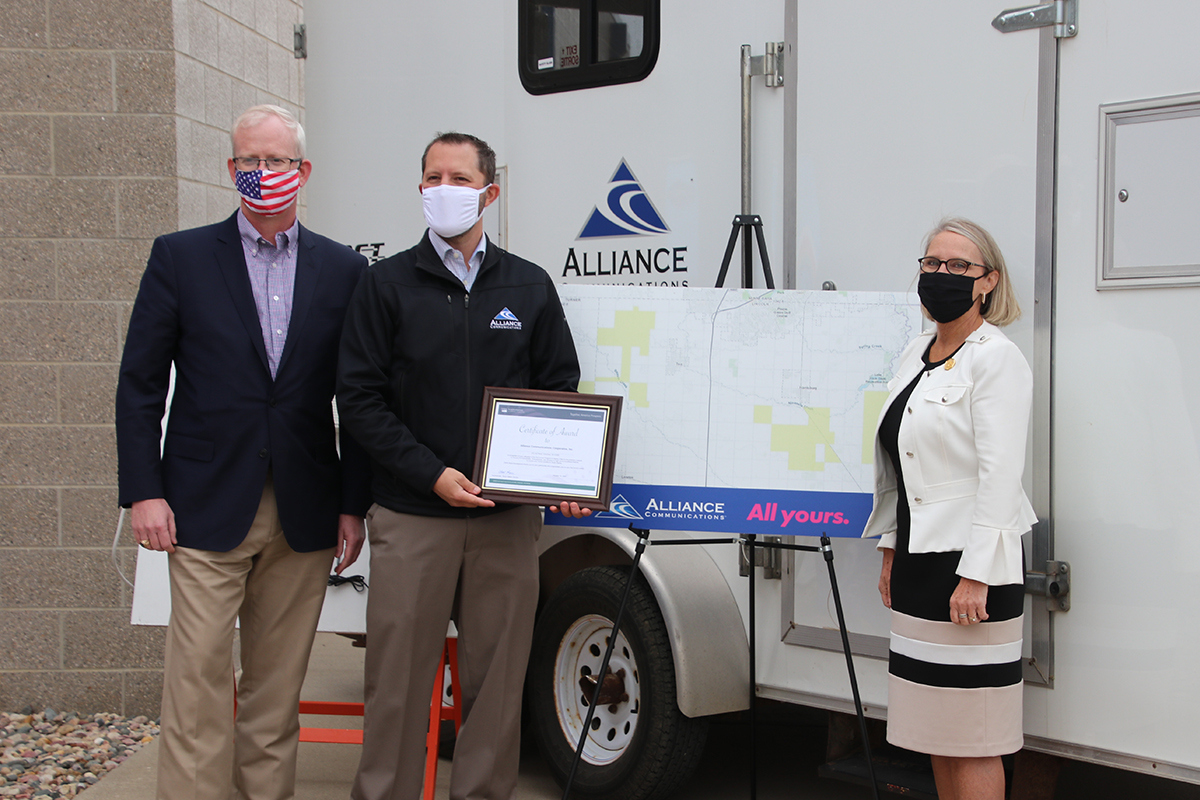
South Dakotans in several other communities also will benefit in coming months and years from connectivity improvements made possible recently by federal grants received by SDN member companies:
- Valley FiberCom received $5.5 million for improvements in rural Brookings, Kingsbury, Moody and Clark counties.
- Alliance Communications received $3 million for work in Lincoln and Turner counties.
- Golden West received $1.7 million for work in the rural Edgemont area.
“SDN and its member companies are filling all those holes in South Dakota where broadband doesn’t exist,” Brown said.
Visit SDN's ReConnect page for the latest information on the project and to subscribe to receive our ReConnect Newsletter and other updates via email.
SDN is a leader in providing business internet, private networking and cloud connectivity to businesses and organizations in communities such as Sioux Falls, Rapid City, Worthington, and the surrounding areas. SDN is owned by 17 independent telecommunications companies that serve business and residential markets across South Dakota.
